RTIM REVIEW
THE SENDING CHURCH EDITION



This July, we’ll be hosting our very first Sending Church Summit in Louisville, Kentucky. What is a sending church? While we never see the phrase “sending church” in the Scriptures, we see the concept throughout the New Testament, specifically in the book of Acts and most clearly in Acts 13 when the church at Antioch sends Paul and Barnabas.
To be a missionary is to be “sent,” and that requires a sender. At Reaching & Teaching, we believe that only local churches can be senders. A sending church affirms that a Christian is qualified as a missionary in both character and competency, and then commits to sending that missionary with the prayer and support—both practical and financial—necessary to sustain them in the field. Sending churches often partner with sending organizations like Reaching & Teaching to provide some of that practical support. That doesn’t negate the sending church’s responsibility for ongoing care. We’ve said this a lot over the years and it’s generally met with a chorus of “Yeses” and “Amens.” These sentiments are often followed up with a question: “But how?”
That’s why we’re hosting the Sending Church Summit. We want to invite some of our friends who are serving in local churches around the country to share with us how they think through their obligations as a sending church. This issue of the RTIM Review will mirror the Summit’s format; it features a variety of articles on pre-field preparation, missions strategy, and missions care.
Several of the articles were written by local church pastors from whom I’ve learned a great deal. They’re exemplary in their preparation of and care for their missionaries. I’m also thrilled that three of our global workers contributed articles. I’m so thankful for these men. The Lord continues to use them to sharpen me in all avenues of my life. Finally, I’m thankful for the contribution of Matt Bennett and Tim Hamer. Matt serves as our Director of Long-Term Ministries and teaches on faculty at Cedarville University. He’s exactly the type of individual that churches should look to for advice on pre-field preparation. Tim Hamer was a colleague of mine at my former church in Canada. While he still serves as a member of that local church, he joined with his wife, Karla, to provide care to our global workers in Asia. I’ve watched him care well for missionaries for over a decade now. I’ve heard how his field visits have consistently encouraged those missionaries. I know you’ll be blessed and encouraged by his advice.
When I read about Hudson Taylor, I’m struck by the inability of his missions society to listen to his on-the-ground insights about the needs in China’s interior. When I read the ensuing chronicles of the next 160 years of missions history, I’m struck by a similar inability: many local churches simply cannot—or do not—care and support their missionaries. So much has been outsourced to agencies.
“
There are many good reasons to use a missions agency, but we should never fail to recognize that the local church is the sender and the missions agency is the facilitator.
There are many good reasons to use a missions agency, but we should never fail to recognize that the local church is the sender and the missions agency is the facilitator. We have much to learn together as local churches, missionaries, and agencies as we partner together to see qualified workers cross geographic, cultural, and often linguistic barriers to make mature disciples, establish healthy churches, and train local leaders for the glory of God to the ends of the earth. I’m looking forward to learning from you all, Lord willing, for many years of co-operation ahead.
Sincerely,

RYAN ROBERTSON


President
Ryan Robertson serves as the President of Reaching & Teaching. Robertson has previously served in executive leadership positions for public companies and other non-profit organizations and has been a board member of several different charities. In 2014, he obtained his CPA from the State of Massachusetts. Robertson is currently enrolled in the Doctor of Missiology program at The Southern Baptist Theological Seminary. Ryan and his wife Erin have three children and are members of Third Avenue Baptist Church in Louisville, KY, where Ryan serves as an elder.
In recent years, there has been an increased interest in what is being called “church-centered missions.” At RTIM, we believe the entire missionary task is aimed at the glory of God through local churches as the means and the goal of missions.
This idea of church-centered missions seems to have struck a chord with many churches who are revisiting and reforming their own thinking on raising up and sending missionaries from their midst. Despite the enthusiasm, however, we often find ourselves in more practical conversations prompted by questions like, “Where do we begin?”
In this brief article I want to provide four bits of advice on how to become more church-centered in your church’s engagement in missions. They are not exhaustive, but hopefully can generate creative application and adaptation within your existing structures.
At its core, the task of making disciples of all nations is the task of making disciples. Thus, the first piece of advice I have is to trust the disciple-making, leader-assessing skills your church has developed. The same questions you ask people whom you are considering for leadership and service within your
own church will be helpful for assessing those you might send as missionaries.
“
As you consider how to assess a potential missionary, you can begin by asking the question, “Are they involved in making disciples in our church?
As you consider how to assess a potential missionary, you can begin by asking the question, “Are they involved in making disciples in our church?” Rather than developing missions-specific processes, you can identify and assess potential missionary candidates with the same structures for discipleship, leadership training, and elder/deacon assessments that you are already using to develop and evaluate leaders in your church.
The second bit of advice I would offer is to proactively invite existing leaders in your church to consider whether the Lord might have raised them up to be sent out. If the goal of church-centered missions is to start, strengthen, and serve local churches, then those whose ministry is already being proven and displayed within your church very well may be your best missionary candidates.
We shouldn’t assume that the church that has raised up and called fruitful leaders also has the right to retain them. In Acts 13, the church at Antioch sent Barnabas and Saul on their first missionary journey. They were church leaders who had been sent to Antioch to strengthen the church, and Saul had a unique appointment from Jesus to serve as an Apostle. Still, the church in Antioch was willing to send their best. You may need to prepare your congregation and your elders for the possibility that as you raise the bar on your expectations for sending that your pastoral staff might end up being identified as prime candidates.
“
...the church in Antioch was willing to send their best.
Third, I’d offer one very tangible way to begin reintegrating missions into the life of your church: build missions into the various elements of your gatherings. Start talking about missions and sending out missionaries as a normal part of ministry. Highlight missionary application of the gospel through your regular worship structures.
For example, you could make a point to give a brief update from one of your missionaries in the call to worship or at the benediction. In your pastoral prayers, include requests that the Lord would raise up and call out missionaries from the congregation. In your sermon application, consider the implications for missions that arise from the text. Normalize the idea that the Lord will call people to missions from within your midst.
Sending a missionary to a place with less Christian support and accountability should cause churches to be slow. There should be high levels of confidence in Christian character, theological competency, and ministerial capacity. These things cannot typically be identified, assessed, and confirmed in a short period of time.
Take the time to disciple people well for the sake of the churches that your sent ones will start, support, and serve.
If you have a plan for identifying, assessing, and confirming elders, then your missionary commissioning process should probably not be much shorter. While the need around the world is urgent, this shouldn’t lead our churches to send people who are under-prepared, untested, and unknown. Take the time—trusting the Lord’s sovereignty in the waiting—to ensure that those you send have been prepared and affirmed.
Of course, no one is ever completely ready to be a missionary. Unfortunately, many who have been mobilized by over-eager agencies and sent by underinvolved churches are less-than-equipped to rightly divide the Word of truth, make mature disciples, and plant biblically healthy churches in a gospel-hostile context. Take the time to disciple people well for the sake of the churches that your sent ones will start, support, and serve.
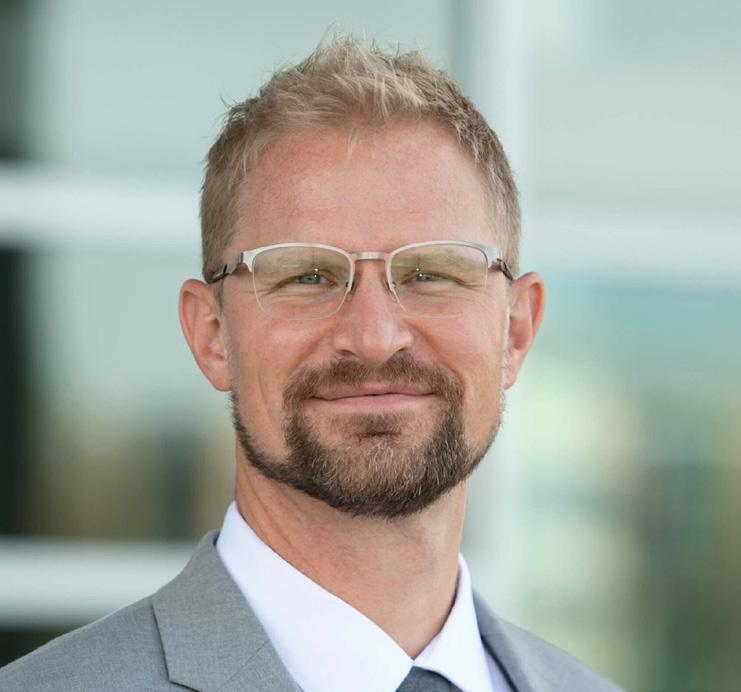
Find more articles about the Sending Church at rtim.org/blog.
Matt serves as an Associate Professor of Missions and Theology at Cedarville University, and also as the Director of Long-term Ministry at RTIM. He obtained his Ph.D. in Missiology from Southeastern Baptist Theological Seminary and served for six years in North Africa with the International Mission Board. Matt and his wife, Emily, live in Cedarville, Ohio with their three children Anabelle, Elliot, and Oliver. They are members of Grace Baptist Church.
Chip Bugnar - Global Pastor
The
Church at Brook Hills
The beginning of John Paton’s autobiography of his missionary labors features how his childhood home became a pipeline to the nations. Reflecting on his teenage years, Paton wrote:
How much my father’s prayers at this time impressed me I can never explain, nor could any stranger understand. When, on his knees and all of us kneeling around him in family worship, he poured out his soul with tears for the conversion of the heathen world to the service of Jesus, and for every personal and domestic need, we all felt as if in the presence of the living Savior, and learned to know and love Him as our Divine Friend. As we rose from our knees, I used to look at the light on my father’s face, and wish I were like him in spirit—hoping that, in answer to his prayers, I might be privileged and prepared to carry the blessed Gospel to some portion of the heathen world. (The Autobiography of John G. Paton, Banner of Truth, 21)
During Paton’s formative years, missions was both caught and taught. Impressions were made that forged his desire to go to the cannibals of the South Pacific and his endurance to stay among them despite numerous trials.
Our churches have that same kind of trajectoryaltering potential.
Our churches have that same kind of
Our churches have that same kind of trajectory-altering potential. There are broad and narrow facets of our life together at both the congregational and personal level that render missions both caught and taught. How can your church become a missions sending pipeline?
4 FORMATIVE ELEMENTS AT THE CONGREGATIONAL LEVEL
1. Trajectory-Setting Realities:
Some biblical truths push people toward the nations as we begin to grasp their implications. These are just a few:
A. God’s glorious grace in Christ for the world can broaden ambitions for mission (Eph. 1:3–14, Rom. 1:15–17).
B. The exclusivity of Christ awakens awareness to the eternal implications of never hearing and believing the gospel (Acts 4:12, 1 Tim. 2:5, Rom. 10:14–17).
C. God’s sovereignty over suffering can overcome fears that keep us hesitant in mission (Rom. 8:31–39).
D. The distinction between lostness with and lostness without access to the gospel can ignite desires for the places where Christ has not been named (Rom. 15:20–21).
How fresh are these realities to our churches?
2. Trajectory-Setting Rhythms:
Each Sunday gathering can impress the privilege of the mission upon us. Prayers for the nations and for more laborers may be the very means by which the Spirit raises them up (Matt. 9:37–38). At our church, our rhythm includes concluding each Sunday gathering by reading the Great Commission. This constant drumbeat means when God does raise someone up to go, we count it a sacred moment—and yet, thankfully, it isn’t odd.
3. Trajectory-Setting Relationships:
Discipling others with a view toward the nations takes intentionality. How can you, through intentional discipling, take people beyond themselves into the broadness of God’s mission? How can you platform other disciplers to do the same?
4. Trajectory-Setting Resources:
A pipeline without fuel likely won’t be effective. Think about investing resources on the front-end of future missionaries. Give students discounted short-term and mid-term opportunities. These early deposits could affect longterm trajectories. It’s wise to think about the back end as well. If God raises up a missionary from among you, how would you rally behind him with the necessary resources?
NARROW PIPELINE DEVELOPMENT:
3 FUNCTIONAL ELEMENTS OF SENDING
The pipeline needs finishing before it becomes functional. This happens when your church defines its process for sending future missionaries. This helps candidates know where they are in the process and helps the church identify its corresponding responsibilities at each stage.
We think about three facets at this stage: readiness assessment, development, and affirmation.
1. Readiness Assessment:
We come alongside those desirous to serve overseas to evaluate their readiness for the task. We consider
a person’s theological convictions, consistency of character, competencies related to their gifting and desired role, available opportunities, and the right sending organization.
2. Development:
The sacredness of this task deserves our utmost effort. Coaching in evangelism habits and language acquisition might be necessary. A core curriculum of four “Equipping Modules” awaits every potential missionary from our church. We cover basic hermeneutics which establishes biblical authority; gospel clarity and its connection to a missionary’s philosophy of ministry; the gospel and grief as we embrace suffering for the task; and biblical ecclesiology which we call “The Great Commission as Church Work,” where
we focus on reading Matthew and Acts in light the author’s literary design.
3. Affirmation:
Formalizing this step imparts the backbone of congregational affirmation into the missionary’s internal desire to serve. They become partners in advancing the gospel. This affirmation step concludes with a congregational commissioning which formally endorses the missionary as a credible messenger of the Lord Jesus to the nations. We pray over these commissioned workers during our corporate gathering.
May God make our churches like Paton’s home, where ambitions are stirred to be the answer to our longings for more laborers to go out from among us.

Global Pastor - The Church at Brook Hills
Chip has been married to his wife Bec for 20 years, and they have four children: Emma, Owen, Benjamin, and Simeon. God opened Chip’s eyes to his need for Jesus during his freshman year at NC State University. After college, he attended seminary at Southeastern Baptist Theological Seminary while serving in college ministry at a local church for ten years in the Raleigh, North Carolina area. They then moved to engage a least-reached people group in Central Asia for the next seven years. In 2018, his family moved to Birmingham, AL, where Chip serves as the Global Pastor at The Church at Brook Hills.
Brian Pate - Global Worker | Brazil
I remember when I was in Bible college feeling the urgency of missions. “Millions of people have never heard the name of Jesus,” I thought. “So what am I doing sitting here studying Greek vocab cards?!” But I realized that if God was calling me to missions, then he was also calling me to prepare. If it’s worth going, it’s worth preparing.
The urgency of the task might lead us to send anyone who’s willing to go. I’m afraid the church has sent many eager but unprepared missionaries. In reality, the urgency of the task should not lead us to go as fast as possible, but rather to prepare as well as possible.
Preparing well is one way to love the nations.
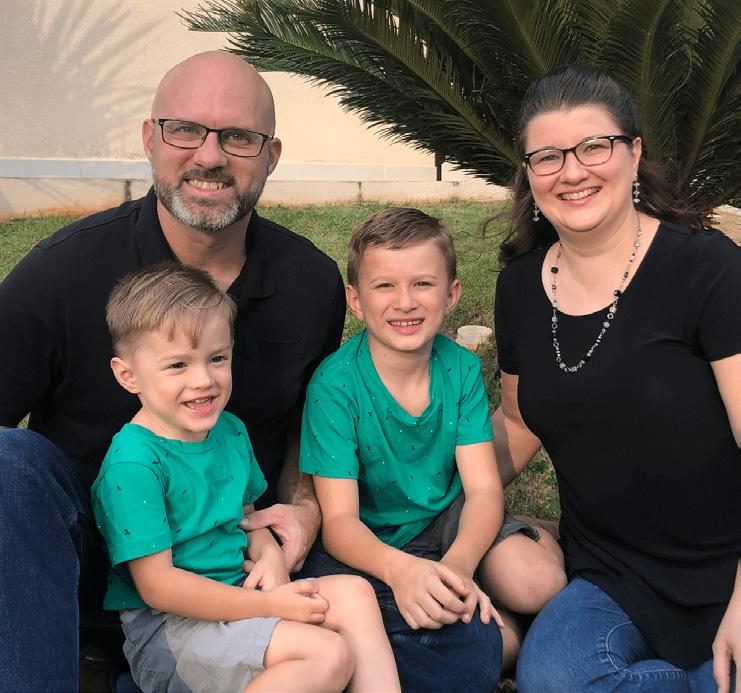
Preparing well is one way to love the nations. I used to hear people joke about sending missionaries half-used tea bags because they’ll be grateful for whatever they get. But we do the same thing when we send our half-prepared missionaries to the nations. Missionary, do you love the lost? Then prepare well! Pastor, are you passionate about missions? Then send your best!
2. THE IMPOSSIBILITY OF PREPARATION.
Keep in mind that we will never be 100% prepared. Be prepared to be unprepared.
- Be prepared to be insufficient to show the sufficiency of God (2 Cor 3:5). To be a missionary is to enroll in God’s school of dependence.
- Be prepared to be weak to show the power of God (2 Cor 4:7). God is putting the world’s greatest treasure (the gospel) in the cheapest of containers
Worker | Brazil
(jars of clay). Embrace your identity as weak, unimportant, and expendable.
- Be prepared to suffer to show the life of Jesus (2 Cor 4:8-12). Suffering is not a problem to be fixed; it’s God’s plan to show the world his glory through weak missionaries.
So be prepared to be unprepared. When you minister out of your weakness, God gets the glory and the unreached can participate in the life of Jesus.
3. THE SCOPE OF PREPARATION.
How can we be intentional about preparing missionaries well? By paying attention to their character, convictions, and competency.
Character:
A missionary should have a strong personal walk with God. Personal communion with God is the only thing that will sustain a missionary on the mission field. Those desiring to go
Brian and his wife Christa have served as missionaries in Brazil since 2018. Brian holds a D.Min. in Biblical Theology from The Southern Baptist Theological Seminary and served as an associate pastor for five years in Texas. He and his wife have two sons, Caleb and Josiah.
should wait until they have consistent victory in sexual purity.
They should have an exemplary marriage and family. “Healthy families validate our message,”1 wrote Matt Rhodes. On the other hand, a weak marriage and out-ofcontrol kids will undermine the message.
Pastor, don’t lower your expectations for a missionary. Send your best.
If they are to plant churches, they must have a clear vision on the nature and mission of the church.
Sometimes we think that theology is less important for missionaries. J. C. Ryle vehemently disagreed, warning us not to send “anybody and everybody who is an ‘earnest’ man. . . . If there is any minister who must have distinct views of doctrine, it is the missionary.”2
Missionaries must have strong convictions about who God is. They
must know how God saves sinners. If they are to plant churches, they must have a clear vision on the nature and mission of the church. They must have convictions about ministry philosophy before they get to the field.
We need to ask honest questions about whether a potential missionary has the necessary practical and ministry skills for the task. This starts in the local church. If someone is not sharing the gospel at home, how can we send her to do it overseas where it will only be more difficult? If someone has never preached in his local church, how can we send him to preach in another language? The most important skills a missionary needs—evangelism, discipleship, church planting, and leadership training—are best learned in the context of a local church.
Mission fields are not all the same, so we must match a candidate’s practical and ministry skills to the needs on the ground. This includes language aptitude, cultural awareness, and practical strategies for entering some countries.
The need of missions is so urgent that it necessitates proper preparation. We should send our best—men and women of godly character, deep convictions, and strategic competency. Preparing well not only shows our love for the nations, but our love for Jesus. Let’s honor him not just by obeying the Great Commission, but by doing it to the best of our ability.
1 - Matt Rhodes, No Shortcut to Success: A Manifesto for Modern Missions (Wheaton, IL: Crossway, 2022), 220.
2 - Qtd. in E. D. Burns, The Missionary-Theologian: Sent into the World, Sanctified by the Word (Fearn, Ross-shire, Great Britain: Christian Focus Publications, 2020), 101.

Ryan Robertson - President
“It takes a village.” You may have heard that sentiment about raising children, but that’s not what I’m writing about here. I’m referring to the collective effort it takes to disciple, train, send, and support a missionary overseas. I’ve been regularly reflecting on that collective co-operation in recent months. I’m astounded by and thankful for the sheer number of churches, individuals, and organizations that we get to partner with at Reaching & Teaching. Like-minded Local Churches
Usually, one church doesn’t send all the units that comprise a church planting team. Instead, multiple churches send units to a specific location.
A number of missions agencies are intentionally theologically broad in their efforts. Others are a bit narrower and encourage denominational cooperation. At Reaching & Teaching, we’re committed to our reformed, baptistic, complementarian, confessional, and church-centered convictions. We use a modified version of the New Hampshire Confession (1853) as a theological marker of where we stand on a number of issues. We are as clear as we can be about this so that sending churches and missionaries can be assured of doctrinal like-mindedness among colleagues. We believe that makes for meaningful and effective co-operation within Reaching & Teaching and it allows our partners to know what we’re aiming for in our work.
A local church is the primary source of a missionary’s discipleship and training.
A local church is the primary source of a missionary’s discipleship and training. As future missionaries regularly gather with their local church, they’re being equipped for ministry overseas. They’re being equipped to understand what a competent and qualified missionary looks like. They’re learning what a missionary should do, that he or she should prioritize evangelism, discipleship, church planting, and training local leaders.
Often—but not always—a sending church will enlist the services of a seminary or training program to further equip a prospective missionary.
After all, most local churches don’t have the theologians, language experts, and church historians that seminaries do. So they encourage aspiring pastors and missionaries to attend seminary to be equipped before entering full-time ministry.
I’ve been encouraged by the work of Radius International and Radical to establish resident training programs designed to equip missionaries with specific skills that are necessary to take the gospel to hard-to-reach places. Most local churches that I’ve encountered can’t train people to do all this. Sharing the gospel and planting churches among the hardest to language groups is hard! So it normally requires extra training.
As I reflect on the collective efforts of various churches and organizations, I’m reminded of some RTIM units in a specific location in Southeast Asia. Over ten local churches have sent people there.They were trained at various seminaries and through various training programs. While they’re all located in close proximity now, some will be moving to new places to plant new churches in the coming years. Others are currently working with organizations like 9Marks and Desiring God to translate and produce resources for local churches throughout the country. The cooperating churches belong to a variety of associations: the Pillar Network, ACME (the Association of Churches for Missions & Evangelism), and others. Other churches from still more associations have committed to ongoing financial support. All told, dozens of local churches and hundreds of individuals are supporting these teams. Even more
churches and individuals are donating to the ongoing work of pastoral training and translating resources for a number of local churches—some of which haven’t been planted yet.
Now multiply such cooperation across the 46 other countries where Reaching & Teaching has units. I hope that gives you a sense of the overwhelming privilege that we all have in participating in what the Lord is doing. President Harry Truman once said, “It’s amazing what you can get done when nobody cares who gets the credit.” I agree. Let me borrow President Truman’s sentiment and apply it to our work: It’s amazing what we can get done together for God’s glory when nobody tries to claim the credit for what God alone can do.
If we want to see healthy local churches full of mature disciples and led by faithful local leaders, then we must acknowledge that “it takes a village.” We must work hard to build gospel-centered friendships and partnerships for the glory of God and the spread of the gospel.

Miller Johnson - Associate Pastor for Missions
SUPPORTING GOSPEL-CENTERED WORK BY CARING FOR PEOPLE WELL IN PLACES WE KNOW
How does a church determine its priorities in sending and giving? With so much gospel need and opportunity, how do we decide what we support and what we don’t? We can start with these three simple principles to order and evaluate our missions priorities. We want to support 1) gospel-centered work 2) by caring for people well 3) in places we know.
GOSPEL WORK
First, while we care about physical suffering, we care most about eternal suffering. So while we would be happy for members to commit time, energy, and resources to humanitarian organizations and relief efforts, the church is uniquely given the task of sharing the gospel and discipling men and women unto Christlikeness. Practically, that means the church spends money on workers who are doing exactly that: serving as pastors, evangelists, and in deaconlike roles overseas. This might seem like an obvious point—of course we want to prioritize gospel work! But mission creep is a real temptation. So remember the strategic goal we have as senders: to spread the gospel and make disciples.
God uses men and women to carry out the Great Commission. In the spirit of 3 John 5–6, we want to “send them on their journey in a manner worthy of God.” In other words, we want to support our missionaries really well. What does it mean to strategically support them? It first means serving them spiritually. We do that, in part, by funding travel for pastors and members to visit our missionaries, ideally once a year. You may not hear about growing disunity in a marriage in a phone call or WhatsApp exchange, or even when they come home for a visit. But you will undoubtedly get a better feel for what real life is like when you visit them in their context. Of course, these visits are also a good time to help them with ministry projects. But often the most helpful and encouraging thing we can do is pray with them, buy dinner for their family, and ask them spiritual questions about what the Lord is doing in their lives.
We also want to meet physical needs where we can. Here again, the pastoral visits prove their usefulness. When we see a broken-down vehicle or a bad living environment with our own eyes, we can mobilize resources to help. For missionaries to keep doing their ministry abroad, they need support. If their marriage is in trouble, or their health is poor, they’re likely to come off the field. To the extent we are able, we want to send them off in a generous, godly manner, trusting that they will bless others with any overage our openhandedness provides. As senders, we want to care well for the people we send, body and soul.
We could spend pages talking about the strategic places to send gospeloriented dollars. There is no lack of need for gospel work all over the world. But providentially, we must entrust our limited resources to the Lord. So how do we think about where to invest our resources strategically?
“
...encourage members who are interested in missions to first pray about the possibility of joining the work of those whom your church has already sent out.
If you already have workers serving abroad, consider sending more people to help them, for “the harvest is plentiful, but the laborers are few” (Matt 9:37). Missionaries can benefit by fellowship, godly counsel, and practical help (think childcare, helping lead music, etc.) and are sustained by godly friendships on the field. So encourage members who are interested in missions to first pray about the possibility of joining the work of those whom your church has already sent out. As the Lord continues to raise up workers, pray for eyes to see new opportunities to expand to other areas of that region as well.
If your church hasn’t sent out missionaries, pray that God would remind you of global relationships you have that might benefit from your church’s involvement. Church planters
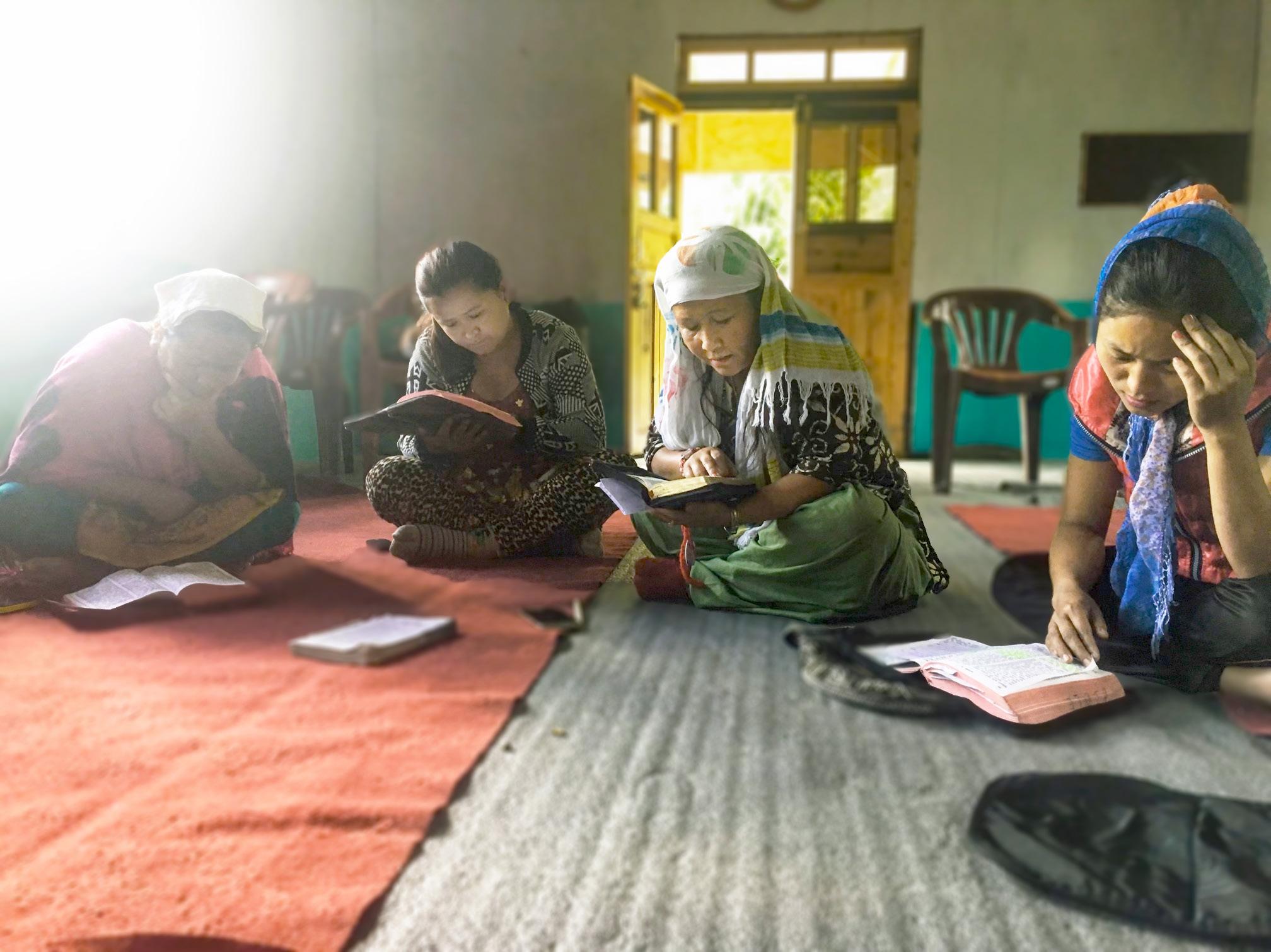
work in the Central Asia region can be traced back to our senior pastor’s close friendship with a missionary sent to the region around the same time he took up the pastorate. Praise God! If you don’t have such relationships, talk to other churches you trust, and see what missionaries they might know who need help. Most likely, their workers would love more men and women joining

them. As senders, we want to see the gospel go to the remotest locations of the world—but let’s not discount the wisdom in sending more workers to fuel existing ministries in places we already know.
Ultimately, we can plan and strategize all we want, but the Lord establishes our steps (Prov. 16:9). Years ago, our church had no plans to support work in Southeast Asia. In God’s providence, several of our families moved to the
region after the pandemic displaced them. This wasn’t a strategic region we’d been praying about for years, but it was a clear gospel opportunity met by willing, godly workers. Now, we’re looking forward to sending several more families to the region in the coming years. Praise God! He has us and He is in charge. We can trust He will use even our imperfect efforts for His glory and our good.
Miller and his family live in a major U.S. city. As the Associate Pastor for Missions, Miller is responsible for leading their church’s missions efforts, overseeing the care of their international workers, and giving a framework for how they are preparing and sending.
Global Worker - MENA A
When considering church planting on the mission field, we all agree that we should send teams of people, not just individuals. We have biblical examples of this practice in Barnabas and Paul (Acts 13:1–3). We’re also told that the body of Christ has different members with a variety of gifts(1 Cor. 12:4–6). These gifts are given by Christ for equipping the body so that it grows in maturity (Eph 4:11–12).
So what should we consider as we build teams either to be sent together or to join an existing church? I’ve lived overseas and served as a church planter for 12 years in North Africa. Here are four things to consider.
1. MISSIONARY TEAMS NEED TEAMMATES WITH EXEMPLARY, CHRIST-LIKE CHARACTER.
It can be tempting to prioritize zeal over character. Pastors and churches get excited when someone is “on fire for Jesus” and wants to take the gospel to the nations. Praise God for that! May it never be squelched but instead set ablaze in love for Jesus more than love for the lost.
Love for Jesus, according to John 15, is bound to obedience of Jesus. “Abide in my love. If you keep my commandments, you will abide in my love” (John
15:9b–10a). As we know, obedience does not start with outward action but an inward change of the heart towards God (Ez 36:26–27).
So what do we look for as the top priority of any missionary candidate? We look for character. Tested, proven, affirmed, and lasting fruit of character. This is overwhelmingly the qualifications that Paul puts forward for his two young disciples, Timothy and Titus, when helping them think through who might join them in the work as elders (1 Tim 3:2–7, Tit 1:5–9).
2. MISSIONARY TEAMS NEED TEAMMATES READY TO MINISTER THE WORD
More than businessmen and women. More than just “Lone Ranger” evangelists. More than event coordinators and logistics managers. Mission teams need men and women who are competent in handling the word of God (2 Tim 2:15). This is the main priority. This is “The Task” these saints have been sent to do.
Consider Paul’s encouragement to Timothy: “I charge you in the presence of God and of Christ Jesus, who is to judge the living and the dead, and by his appearing and his kingdom: preach the word; be ready in season and out
of season; reprove, rebuke, and exhort, with complete patience and teaching” (2 Tim 4:1–2). There’s no greater charge. Men and women must be able to confidently proclaim the gospel to the lost. They must be able to explain that Jesus is the Christ from the Scriptures. They must be skilled and tested in helping saints study the Bible. They must be competent by the Spirit to counsel struggling brothers or sisters by giving them timely words of truth. Men who aspire to pastor a church plant on the field must be able to preach the Scriptures accurately, holding out Christ to the congregation from every text. This is the job description.
3. MISSIONARY TEAMS NEED TEAMMATES WITH SPECIFIC SKILLS.
Secondary to these first two priorities, there may other necessary considerations and skills that will vary from location to location. There may be other particular needs, resources, and gifts that are lacking on any given team that will be a great help in seeing the work go forward. This is an area of wisdom.
If there is no church or ministry in this location yet, then it’s wise to assess the needs and access points for entry. What skills or education might one need to gain a visa and create gospel opportunities? If there is a pre-existing church-team,

then communicate openly and regularly with the pastors and team leaders to best understand what they need. What skills and resources might you send that will advance the gospel work there?
One additional encouragement in this category: missionary teams need responsible and mature adults who actually have used their skills in their home context and simply need to learn how to apply these skills in a new context. Paul made tents when necessary (Acts 18:2–3) to gain access to new cities and support the work. Coming ready to use your skills and not just figuring it out for the first time will make one useful instead of a burden.
You must help your missionary candidates understand that when they leave their home they will be starting over in every way. They may have been a professional and highly respected in their home culture. But now, in their host culture, they will be a nobody with no value. They likely won’t even be able to communicate like an adult for some time. In the process of learning the culture and the language, sometimes the needs on the team change. The progress of the work develops. What one was sent to do might become something completely different. There are no specialists in

missions. Everyone must be willing to adapt and figure out how to move forward for the sake of Christ’s name.
We must be encouraged to think as humbly as our brother Paul. He reminds the Corinthians, “This is how one should regard us, as servants of Christ and stewards of the mysteries of God” (1 Cor 4:1). Remember, you are servants of Christ. Whatever he says, we will do. Even when our expectations change and change and change again, we must always be ready to steward the gospel that’s entrusted to us.
A serves alongside his wife as missionaries in a location where there are few known Christians. They want to see a local church established in their region where they, along with locals, can evangelize the lost, make disciples, model and teach maturity in Christ, work together to translate rich theological resources in order to make them accessible for others throughout their host country, while equipping and training future church planters and pastors in ministry and theology with a plan to send them out to plant or strengthen other churches in the region and surrounding countries with their business as a helpful vehicle for local indigenous leaders to be supported.

“
Reaching and Teaching has been a catalyst for stronger missions efforts in the Middle East. Their commitment to church-centered, theologically robust ministry is a throwback to the priorities of William Carey, Adoniram Judson, and Samuel Zwemer, pioneers of a previous era. We value our partnership with RTIM, and pray for more fruit still to come.
FOLMAR, SENIOR PASTOR EVANGELICAL CHRISTIAN CHURCH OF DUBAI

Whether you are considering long-term missions or want to mobilize your church, our Preview Day is a great place to start! What you can expect from the day:
Grow in a biblical understanding of missions
Discover RTIM’S DNA
Connect with like-minded Christians
Learn how you can partner with us




Greenville, SC
Friday, September 20th
Christ Fellowship Cheerydale
North Texas Thursday, December 5th The Trails Church
Austin, TX Friday, December 6th
rch
High Pointe Baptist Church
Portland, OR
Thursday, January 30
Hinson Baptist Church
]
Time: 8am - 5pm
Price per Individual: $50
Tim Hamer - Member Care Associate
In a recent TGC article, Caleb Greggsen emphasizes that “churches should consider taking mission trips where the sole purpose is to encourage missionaries.” Visiting missionaries in their context is a powerful way to support them, potentially providing significant benefits to their resilience and effectiveness.
HERE ARE FIVE KEY CONSIDERATIONS FOR THESE KINDS OF VISITS:
The primary focus of a missionary visit should be to check on a missionary’s spiritual health. To prepare, read their newsletters or social media posts to understand their situation and the basic facts about their country and ministry.
This ensures you won’t ask questions you should already know the answers to. Request that the missionary set aside uninterrupted time to give a full report of their life and work. Listen empathetically, offer wise counsel, and find out how they are truly doing. The goal is for the missionary to feel loved, heard, and prayed for. This approach mirrors the biblical example of the Apostle Paul who sent the faithful minister Tychicus to the Ephesians with one purpose: “that he may encourage your hearts” (Eph. 6:21–22).
It’s easy to fall into the trap of looking for tangible results in ministry, which can put undue pressure on missionaries. Instead of evaluating their outcomes, focus on the health of their relationships with coworkers and how their family is adapting. Celebrate their wins and share in their losses without probing for results. Some missionaries work through significant trials and suffering for years before seeing any visible fruit. If you know the state of your missionary’s heart, it will guard you from inspecting their fruit.

When visiting, leverage your luggage capacity to bring joy to the missionary and their family. Ask what their kids want from home and bring those items. Include books, taco seasoning, homeschool curriculum, letters from loved ones, and favorite snacks. Every inch of your luggage should be packed with blessings. This is an easy win.
Leave your Safari gear at home. While it’s exciting to experience a new culture, missionaries may be tired of playing tour guide. Instead, find out what their favorite local activities are and participate in those. Treat them to dinner at their favorite restaurant or do activities their kids enjoy. Offer practical help like cooking a meal, doing dishes, or watching their children so the parents can have a night out. Be a tourist of your missionary’s home first. Join them in their family worship. The pure beauty of a family singing and confessing sin to one another far eclipsed seeing the popular sites from their country.
Tim serves as Sending Church Coordinator and as a Member Care Associate for Reaching & Teaching. Tim, Karla, and their three teenagers live in the Greater Toronto Area in Canada. Tim grew up on the mission field in a church planting family and has a huge soft spot for missionary kids and their parents. Tim and Karla are longtime members of Hope Bible Church where he served as the Director of Mission and Compassion Ministries prior to coming to RTIM. Tim loves helping sending churches send well and serving our workers as part of the member care team for Asia.
5.
It’s good to get out of your routine. Experiencing the challenges of a different culture—like jet lag, traffic chaos, and language barriers—often provides fresh perspective. Who knows? The Lord just might be using your missionary visit to prepare the next sermon series or season in ministry.
After your trip, prepare to update your congregation. Provide your church with fuel for prayer and a snapshot of life on the mission field. Your goal should be to bolster your church’s burden for the nations, their zeal to reach the lost with the gospel of Jesus Christ. Could it be that while aiming to encourage your missionary the Lord also invigorates you and your church?
Go ahead and book the trip. It’s a Kingdom win.

A Morris - Global Missions Pastor
In our first term overseas, my wife and I landed in a country we had never been to and joined a team that we had talked to only a few times. Within a few months, the couple leading our team left the field abruptly, followed by the only other couple. My wife and I found ourselves alone. We were assigned to an unreached region of Southeast Asia. There were no churches and no Christians for two hours.
Thankfully, a Christian brother from the capital city reached out on a monthly
basis. He simply called to check on us. The churches we grew up in, half the world away, didn’t have experience supporting missionaries and didn’t extend themselves to communicate. Over our entire first term overseas, we didn’t hear from our supporting church pastors. Communication was weak at best with christians from back home.
We learned the hard way how important support from a sending church can be. As the Scriptures can attest, few churches tend to do this well: “And you Philippians yourselves know that in the beginning of the gospel, when I left Macedonia, no church entered into partnership with me in giving and receiving, except you only” (Phil 4:15).
This shouldn’t be the case. Below are four pieces of counsel so that we can better care for those we cannot see.
SEND MISSIONARIES AS AN EXTENSION OF THE CHURCH.
Too often, churches adopt an “out of sight, out of mind” mentality. When former church members leave town, the relationship falters and at some point they’re forgotten. Sadly, this same mindset includes missionaries. Apparently, some churches don’t recognize their important role in vetting, guiding, and supporting. Missionaries are sent out as representatives of Christ and an extension of your church.1 They should be sent in a manner worthy of God (3 John 6–7). They should be cared for with ongoing concern (Phil 4:10).
As we send missionaries, we should recognize the high task of sending a representative of the gospel from our church into a spiritual war zone. We should care for them by communicating, praying, and partnering.
CHURCHES MUST COMMUNICATE.
Communication is vital. Your missionary will face challenging linguistic and cultural challenges. The church that once offered a solid community back home cannot be physically present. But it can communicate ongoing concern through designated mentors and friends (Phil 4:14–16). In our modern age, communication is extremely convenient and secure. So, if the church at Philippi can make a concerted effort to communicate with Paul and Timothy (Phil 2:25), then surely we can, too. One helpful way to keep communication going is by forming Rope Holder Teams.
CHURCHES MUST PRAY.
You’ve been commanded to pray (1 Thess 5:17). Ask God to strengthen His messengers, to save the unreached, and to see His church formed in needy corners of the globe. All for His glory.
How are you equipping your church to pray for its missionaries? Consider
asking Sunday School classes or small groups to give 20 minutes a month to praying. Consider praying for them during Sunday gatherings as often as possible. Praying for missionaries is an appropriate stewardship.
CHURCHES MUST PARTNER.
All churches should be concerned for gospel advance (Acts 11:22). They should raise up and send out missionaries for this glorious work (2 Tim 2:2). They should partner with those sent out for gospel advance (Phil 1:4–5).

Global Missions Pastor
Partners are people to lean on, trust in, and work with. Partners are those who can bear the weight of support. Do you put your church’s spiritual weight behind your missionaries? If so, your ongoing care will be consistent with the worth of such a glorious task.
1- For more on this see this helpful article by Elliot Clark.https://www.thegospelcoalition.org/ article/every-christian-missionary/
A and his wife have been members at their church for over a decade and have been instrumental in seeing the Gospel go forth to the nations. As the Global Missions Pastor, A is responsible for overseeing the care of their international and national workers as well as sending more men and women overseas with the good news of Jesus.
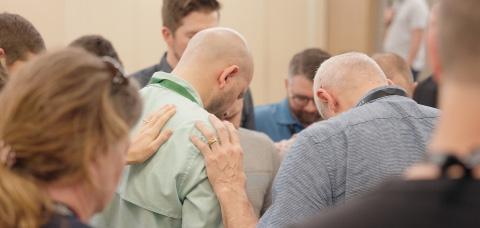
Worker - MENA J
I fear that the church has given too much of the missionary task to mission agencies. I love mission agencies. I’ve served for two myself. But they aren’t the church. They don’t exist in the New Testament. They ought to serve local churches, not replace them. The church is central in the New Testament. So missionary support and care is primarily the local church’s job.
When I say “the local church,” I mean the whole church—not just the elders or missions committee. In Ephesians 4, Paul tells the church that their pastors should equip them for the work of ministry. So pastors should be equipping their congregations to minister to missionaries.
In reality, missionaries need most what all Christians need most: prayer, care, support, accountability. Missionaries are ordinary Christians. They struggle with sin. If they have kids, they want to raise them to honor the Lord. If they’re single, they want to live faithfully as unto the Lord. These desires can be met to some degree by their sending church. Yes, they need the ordinary means of church membership provided through a local congregation on the field. Don’t try and replace their local church membership with your longdistance care. But they also need help from their sending church, too.
How can sending churches help their missionaries? Through prayer, giving, and going.
Samuel Zwemer once said, “The history of missions is the history of answered prayer.” Paul, the quintessential missionary, requested prayer for himself (Eph. 6:19; Col. 4:3). Your missionaries need your prayers. God responds to his people when they pray. If you want to love your missionaries, pray for them regularly.
Organize regular corporate prayer for your missionaries. Mention them in your Sunday gatherings. Gather information from your missionaries so you can pray specifically (be aware of security but seek as much openness as you can). The options are endless.

In 3 John, the apostle commends the support of those who “have gone out for the sake of the name.” The manner of that support is to be “worthy of God” (3 John 6). Does that describe the way you support your missionaries? Make sure they have ample access to funds for ministry purposes. Make sure you know their budget and regularly follow up to make sure their budget is accurate.
Visits on the field are such an encouragement. But make sure you think through them and communicate with your missionary before coming. There are countless types of visits but let me highlight three.
Visit your missionaries simply to care for them.
Seek out the needs. Read their updates and respond. A deep relationship with your missionaries will provide you with better questions...
Visit your missionaries simply to care for them. Send an elder and his wife. Take along baby-sitters to watch their kids. Take them out for dinners. Create lots of space to talk.
I have often heard the question, “If there is anything you need from us, let us know.” This isn’t a bad question, but it is too general. Seek out the needs. Read their updates and respond. A deep relationship with your missionaries will provide you with better questions like “Can we help procure a car/place to stay when you come home?” “You mentioned ____ in your last update, is there a way we can support that work outside of our prayers?” Specific questions help your missionary feel remembered.
Think about other ways you can bless them beyond just their bare necessities. A colleague of mine recently told me about someone purchasing a dryer for their family. Dryers are not a foregone conclusion in many parts of the world. This dryer has allowed this family to rest and focus on good ministry activities. Be on the lookout for needs like these.
for the Christian life (Eph 6; 1 Pet. 5:8–9). All Christians are engaged in spiritual warfare; missionaries often live with a constant awareness of this warfare. When they return from the field, they’re like military veterans returning from a field of service.
So treat them that way. Ask them to sit down with a biblical counselor. Create spaces for them to speak extensively and candidly about their time. When you sense they’re in a healthy place, learn from them. They’ll certainly have healthy perspectives for your church.
J and his wife M along with their three young children count it a privilege to serve the Lord in a big city in North Africa. They seek to share the Gospel, make disciples and see a healthy church established in their city. J works for a business that seeks to teach English to locals and the local language to foreigners. This business provides opportunity for relationships and authentic identity in their community. “

As you are talking with them, if there are ministry projects that your church can support, be quick to volunteer to help. Make sure the projects are meeting actual needs your missionaries feel, not just creating an excuse for a short-term trip.
Mobilize your church to serve alongside your missionaries for extended periods of time. I recently heard from a colleague about a sending church visiting them on the field. The church sent an elder alongside a potential missionary, and the Lord stirred the heart of that elder to consider going to the field as well. And the Lord brought that to reality.
My wife often describes our time on the field as a war. This is an apt illustration, one that the New Testament would use
Global Worker - MENA

Your financial support ensures Reaching & Teaching is equipped to make mature disciples, establish healthy churches, and train local leaders around the world.
As RTIM grows, your partnership in the gospel provides strategic care and resources for our team of global workers and global training efforts for the years ahead. Supporting the work of


Reaching & Teaching is excited to partner with 9Marks on the production of Missions Talk. Missions Talk is a regular conversation about biblical and practical elements of missiology.
Subscribe to Missions Talk wherever you listen to podcasts.
By God’s grace, Reaching and Teaching continues to grow. Over this last quarter, I have been able to participate in over twenty interviews. We have had several units deploy to their fields of service, and we have been able to connect with several partners in ministry in Europe and Washington, DC. This quarter has been full, and so are our hearts.
Returning from a recent gathering of our Europe units at the Pillar International conference, I was struck by the ways the
Below you’ll have the opportunity to get a closer glimpse of things going on in Asia and in Europe. First off, our regional leader over Asia, Chris C. will share about the dynamics of his region along with some ministry highlights. Then Peter Brock, our regional leader over Europe, will share some highlights from within Europe. While there are unique barriers to gospel transmission in each place, I pray that you will be encouraged to see how the Lord is overcoming those barriers through
Learn more about Long-term opportunities by connecting with a Mobilizer at rtim.org.
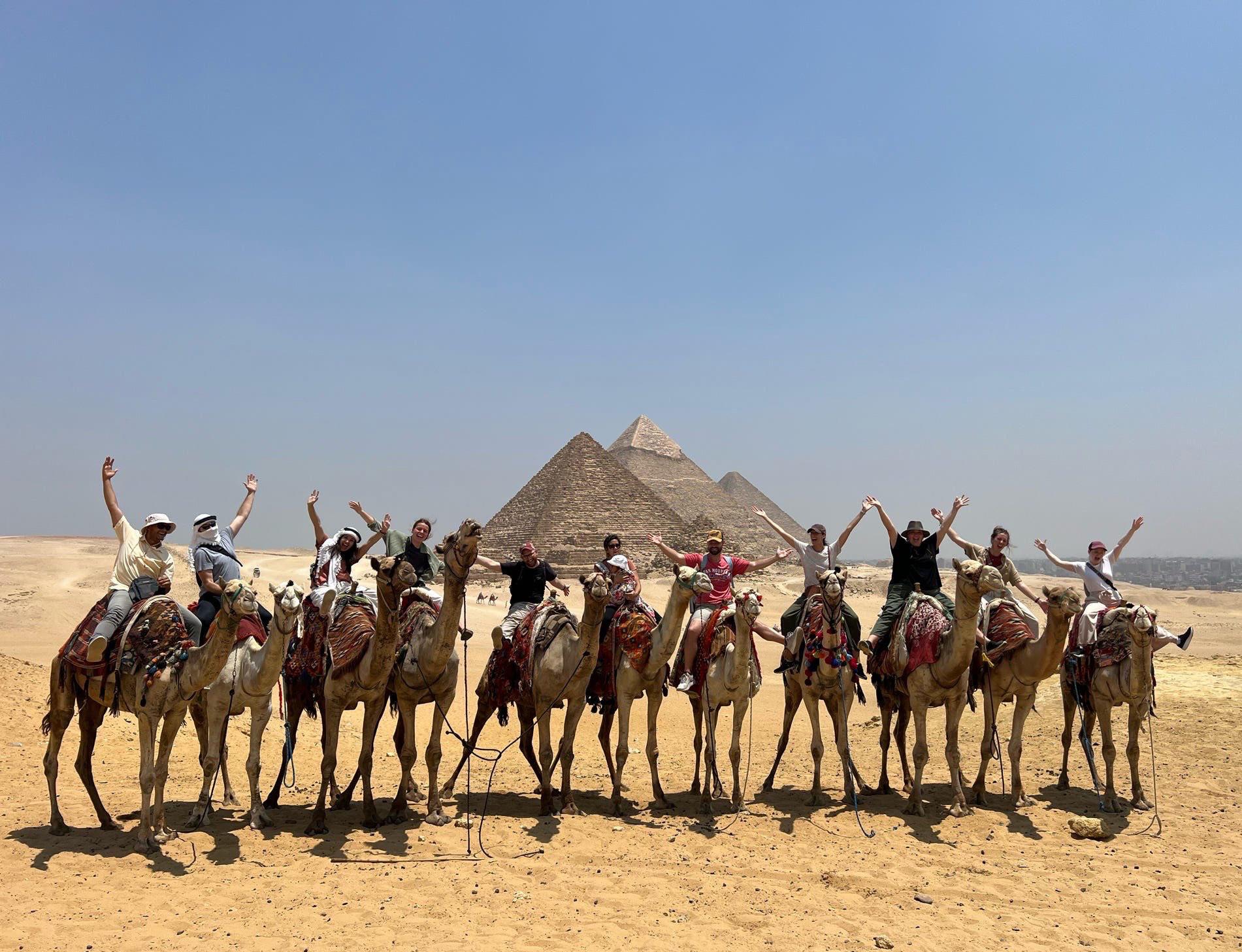
Asia is the birthplace of Hinduism, Buddhism, Sikhism, and a host of smaller religions. Since the 9th century, Islam has also had a prolific presence in this region. With a population of nearly 4 billion, these broken belief systems constitute nearly half of the earth’s population. They’ve kept in bondage an untold number of adherents and left behind a wide path of death and destruction. And yet, hope springs eternal!
Every week, I have the privilege of talking with pastors from different sending churches of RTIM global workers. In these conversations, we bear witness to the various ways the Lord is using their churches and sent-out members. Whether through favorable or adverse circumstances, it’s encouraging to testify to how Christ is being exalted. The more sending churches are aware of how essential they are to the work of their global workers, the more they’ll be spurred on toward meaningful interaction with their work on the field.
Some global workers are immersed in Unreached People Group settings; still others are preparing to be. In Asia, there are more than 1,500 Unreached Language Groups. As workers focus on culture and language acquisition, sending churches are integrally involved. Through pre-field training and comprehensive support, they have well-prepared their sent-out members. By sustaining their members on the field, they’re undergirding the work and playing a pivotal part in the church planting process.
Various RTIM workers serve as pastors. Some are shepherding revitalization efforts, some were sent out to reinforce new church plants in new places, and some joined established fellowships who seek to reach this generation
and develop leaders for the next. This would not be possible without the vital sustenance of supporting and sending churches. Sending churches also encourage congregations on the field by being faithful examples for them.
Moreover, within the region, there are individuals and teams whom the Lord has set apart to serve local churches. Whether through education, agriculture, or other initiatives, sending churches fuel field fellowships’ evangelistic and churchplanting efforts. It is important to remain mindful of the words of J.H. Bavinck, “It is the church, the body of Christ, which forms the organ through which, and in which, the glorified Christ will reveal his great work of salvation in the world. . . . There are no other institutions that can take over this responsibility.”

Chris C. – Regional Leader | Asia
Currently, we’re focused on collaborating with regional healthy churches to forge networks and strengthen associational affiliations. One fruit of this collaboration is the upcoming Weekender at Grace Baptist Church in Singapore. This event will be the inaugural Weekender in Asia. There’s already an annual gathering through the Healthy Churches Asia conference. The plan is to integrate more equipping workshops into the conference to create a robust infrastructure that nurtures continual expansion and growth. Additionally, Simeon Trust workshops are readily available for training in exegetical study and expositional preaching.
As these various endeavors converge, North American churches are uniting with fellowships across Asia via churchcentered missions. May we be diligent in expressing gratitude for the roles and responsibilities through which we serve both our Savior and our churches.
Chris and his wife have nearly 20 years of church planting experience in Asia amongst Unreached Language Groups. They have recently returned to the States where they serve based out of a healthy church in Florida’s panhandle. Chris serves as the Regional Leader for Asia and enjoys working with churches to help them reach the unreached of this generation and develop healthy churches for the next. Chris has two children in college and a third child that will be starting high school soon. Chris has both an MAIS and an MDIV in International Church Planting from Southeastern Baptist Theological Seminary in Wake Forest, North Carolina. He is currently working on his Dmin in Missions from Midwestern Baptist Theological Seminary in Kansas City, Missouri.
Peter Brock - Regional Leader | Europe & MENA
When we lived in Avigliana, Italy, outside our window, perched on Mount Pirchiriano, was the Sacra di San Michele. Its foundation was laid in the late 900s; the complex has served several purposes through the years. It’s been a monastery, a refuge for pilgrims from France on their way to Rome, a Roman fortress defending the entrance into northern Italy. Currently, it’s an abbey. The structure is formidable and imposing. And yet, it’s also empty, cold, and a representative of past glories.
When I think of the local church climate in Europe, the Sacra illustrates it well. After years of little-to-no growth in evangelical churches, a pessimism can easily cast a pall over daily ministry. A vision for healthy and growing churches is often overshadowed by the vestiges of dead religion. Secularism carries the day in Europe. Evangelicals are marginalized on most of the continent. Most Europeans can easily live without encountering a person who would introduce them to Christ.
Opportunities for growth are limited because there are so few churches in
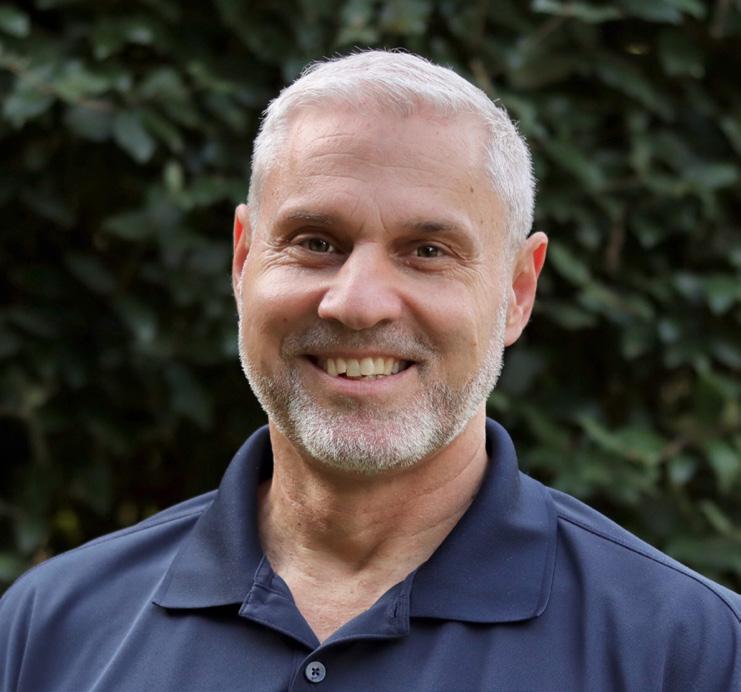
which to fellowship. True believers are left isolated. Pastors are often bivocational; they have minimal margin for shepherding a congregation. The need for like-minded, elder-qualified men to come alongside existing churches or to plant churches alongside national brothers is immense.
The challenges are many, but we are encouraged by the work of the gospel among RTIM global workers in Europe. Currently, there are 22 units serving in or preparing to serve in 12 countries. To highlight a few:
- In Ireland and Northern Ireland, there are four units ministering alongside national pastors in Cork, Dublin, and Belfast. These men and their families are committed to faithful preaching and meaningful discipling in the context of a local church. Through their work, churches are being strengthened and church leaders are being discipled and trained.
- In France’s two largest cities, Paris and Marseille, there are currently three units in country. Lord willing, another three
will deploy in the next 12–18 months. Pray for the new church plant in Paris. Ask the Lord for a solid beginning and steady growth. In Marseille, pray for the team there as they serve the local French church and as they consider a church plant in another part of the city.
- We praise God for the recent arrival of a RTIM family in Warsaw, Poland. We’re thankful that they have been able to land in a solid church while they engage in language learning and cultural acquisition for the next few years. Pray for wisdom as we determine further ministry opportunities.
- A RTIM family recent arrived in Reykjavík, Iceland to serve at Loftstofan Baptistakirkya. Pray for this young family as they begin language and cultural acquisition and as they assimilate themselves into the life and ministry of the local church. Iceland is a kind of mystery to us, especially when it comes to the state of the church. Here is just a portion of a RTIM blog written: “A recent national survey found that, of those polled aged 30 and under, exactly 0.0% claimed to believe in
Peter serves as Regional Leader for Europe and MENA with Reaching & Teaching. Peter and his wife, Lisa, served as missionary church planters in Italy from 1993 – 2003. They currently reside in Louisville, KY. Previous to moving to Louisville, Peter served as Missions Pastor at Faith Baptist Church of Winter Haven, which allowed him to travel extensively, and see firsthand the needs around the world for discipleship and teaching. While in this role, he also served as President of Faith Baptist Mission. Peter has a deep passion to serve missionaries well, to see the truth of the gospel preserved, and to see 2 Timothy 2:2 carried out in churches throughout the world. Peter and Lisa have four grown children and nine grandchildren.
a Creator God. A vast majority said they were either atheistic or simply uninterested in anything religious or spiritual. About 0.03% of Icelanders consider themselves to be Biblebelieving Christians, which adds up to around 200 people. As best I can tell, only three or four churches in the entire country preach any semblance of the true gospel.”
Pray for the light of the gospel to penetrate dark hearts in this land.
- We praise God for a new church plant in Rotterdam, Netherlands. The RTIM worker there is a Dutch national who is teaming with another Dutch couple to plant a church in a very secular city. He shared that several believers who have begun attending mentioned that they
had given up hope for a faithful church in Rotterdam. Pray as the church plant grows and establishes itself as a light for the gospel in the city.
- In addition to the above, RTIM units are serving or will soon be serving in England, Scotland, Norway, Spain, Portugal, and Germany. Pray that they will serve the churches well.
- We are thankful for like-minded national associations like Evangelium 21 evangelium21.net, the Association of Irish Baptist Churches baptistsinireland.org, and Pillar International.
- Just last month, RTIM conducted its first local leader training for pastors and church leaders in Mantua, Italy.
Pray for this training and additional opportunities.
- RTIM’s Women’s Institute has been involved for the past 2 years with women’s trainings in Dublin and south of Rome in Cisterna di Latina. Pray for these ongoing trainings.
Europe is spiritually dark, yet the light of the gospel is giving hope. Pray with us as we seek to make mature disciples, establish healthy local churches, and train local leaders on the continent.
